How to Make Your Water and Tea Taste Much Better
TEATIME NOTES
Find tips, recipes, and articles to increase your delight and enjoyment of tea.
How to Make Your Water and Tea Taste Much Better
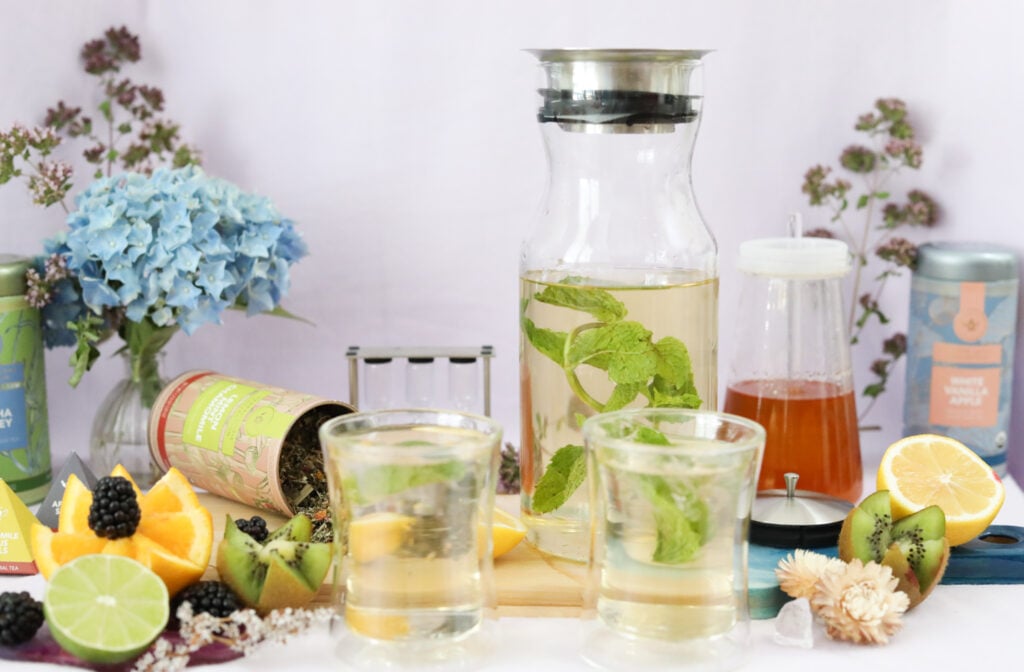
The Truth About the Water You Make Your Tea With
Do you ever think about the water you use to make your tea? You have quality tea and teaware, but you haven’t put much thought into the water.
If you go through all of the trouble to measure out your tea leaves and make sure your teaware is spotless, you must consider using the best water for your tea. But what is the best water? What can you do to make your water taste better so your tea tastes its absolute best?
Why Your Tea Tastes Bad At Home
Of all of the elements that can affect the flavor of tea, the water you decide to use has the greatest impact. You can own the world’s purest teapot, use high-quality tea, and measure and analyze each tea type and tea leaf — but, if you don't use the right water, your tea will fall flat.
Do you ever wonder why your tea seems to taste so delightful at your local tea house, but when you enjoy the same tea at home it tastes bitter, acidic, or weak? It’s likely due to the kind of water you use.
Everything from the freshness of your water, to the number of minerals in your water, or even the pipes where your water comes from has an influence on the flavor of your tea.
4 Types of Water that Alter the Flavor of Your Tea
- Tap Water
You can certainly use water from your sink to make tea at home, but the effect it has on the flavor of your tea can be drastically different based on where you live. If you live in a city that has overly hard or soft water, you might find that the flavor of your tea isn’t as delicious as what you experienced at your favorite tea room.
- Filtered Water
You can use a carbon filter or other kinds of filters to add beneficial minerals to your water and remove other minerals from your water. But it’s good to know that the flavor of your filtered water largely depends on the initial source of the tap water. You may be able to salvage the flavor of your tap water.
- Distilled Water
This kind of water has no minerals and is completely pure. It’s commonly used in household appliances and it’s great for sterilizing equipment. Some people believe that distilled water is the best water you can use for tea because of its purity — but you will learn that this isn’t true.
- Bottled Water
The flavors and quality you get from bottled water vary greatly. It turns out that only about 55% of your bottled water comes from fresh spring sources. The remainder might be sourced from tap or filtered water. You may find that certain brands of bottled water taste much better than others.
The Best Ph for Your Tea
The kind of water you decide to use for your tea is completely up to you and your tastebuds. You can use any kind of water for your tea, but certain kinds of water produce a better flavor according to studies and blind taste tests. If water has a neutral Ph between 6 and 8 the flavor of the tea was more likely to taste well-rounded and full of character.
Is Hard Water or Soft Water Better for Tea?
Hard water tends to make tea taste sharp or metallic because it has a higher Ph and more magnesium and calcium. Soft water is lower in Ph and has fewer minerals which results in a flat or chemical-tasting tea with little character. Did you know that teas made with soft water are known for being some of the worst-tasting teas?
If your water tastes metallic or sharp it might be too hard — you may want to filter your water to try to improve the taste. If your water is lifeless and flat it may be too soft — you can try adding a touch of salt while it’s boiling to give it more life.
Why You Should Never Use Distilled Water for Your Tea
Some assume that because distilled water is the purest water that lacks all minerals, it will make your tea taste better and cleaner. But according to studies, this could not be further from the truth. Distilled water might be the worst water for your tea.
It just so happens that during blind taste tests, the teas that were made with water that had more minerals tasted much better. In fact, a medium to high concentration of minerals brought out more subtle and rounded flavors in most teas. Distilled water left teas tasting lifeless, flat, and just plain bad.
What Kind of Water is Best for Black Tea?
Other studies show that using different kinds of water for black tea didn’t result in much of a difference in flavor. Many people can’t taste the difference between black tea which is made with quality bottled water as opposed to ordinary tap water. Black tea has a much stronger flavor than most other teas and covers up the subtle differences in the flavor of the water.
What Water Brings Out the Flavor in Green Tea?
For more delicate teas — such as green, white, or oolong — the type of water made an enormous difference in the flavor of the tea. And it turns out that the best tea to use that brings out the flavor in green tea is ordinary tap water. Taste testers report that green tea made with mineral-rich tap water is sweeter and a little more delightful on the palette.
What Kind of Water Makes Green Tea Healthier?
These same studies show that using bottled water increases the health benefits of green tea as opposed to tap water which increases the good flavor of green tea. The bitter flavor you taste from some green teas made with bottled water might be the result of increased EGCG antioxidants that may have anti-cancer properties. When drinking green tea for your health, you might want to consider using quality bottled water to help enhance the antioxidant benefits in tea.
Why You Should Only Use Fresh Water
Boiling water for tea seems simple enough but it turns out that the way you boil water might have a great effect on the taste of your tea. For the best-tasting water, only use freshly boiled water, and never water that’s been reboiled.
Reboiled water — or twice boiled water — is boiled, left in the kettle to cool down, and boiled again. When you boil water it can kill harmful germs, but you also release oxygen from your water and if too much is released it can result in flat-tasting water. Boiling water over and over again doesn’t get rid of minerals and other chemicals — in fact, the water boils off and leaves you with a higher concentration of minerals and chemicals that can also change the flavor of your tea.
When boiling water, try to use only about as much as you will need. Fresh water is a precious resource and you may not feel comfortable emptying your kettle of pre-boiled water. But you want to make an effort to use completely fresh water every time you make a pot of tea.
The Best Tea Kettle for the Best Tea
When you boil your water, you also want to make sure you are using a kettle that is not going to leach additional chemicals into your water. You have gone through all of this trouble to use fresh quality water for your tea — you should make sure it doesn’t get contaminated. The best kind of tea kettle you can use is a borosilicate glass tea kettle.
This material is widely used in the scientific community and has been introduced to the world of tea as a clean and chemical-free alternative to metallic and porcelain teaware. It will never leach harmful chemicals into your water, and it will not alter the flavor of your water, unlike traditional tea kettles. If you want to preserve the flavor of your water and enhance the taste of your tea, do yourself a favor and use a borosilicate glass tea kettle.
Where to Find Borosilicate Teaware
At Teabloom, you can take a look at the widest selection of borosilicate glass teaware available. They are passionate about tea and your health and they are on a mission to clean up the tea industry.
Their handcrafted teaware is not only beautiful but enhances the pure flavor of your favorite tea. Their teas are USDA-Certified Organic, and Certified Kosher — and they work with small farms to source their single-origin teas.
Explore sustainable, affordable, and taste-free teaware at Teabloom, today.
*The information provided in this post is not intended to be a substitute for professional medical advice, diagnosis, treatment, or prevention. If you or someone you know has a medical concern, you should consult with your professional healthcare provider or seek other professional medical treatment.

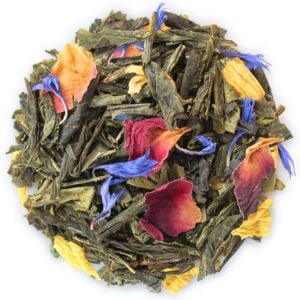

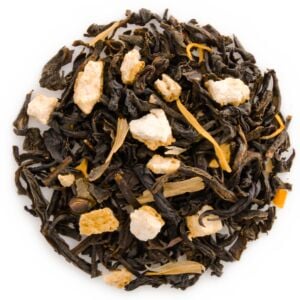
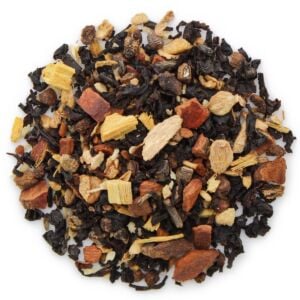
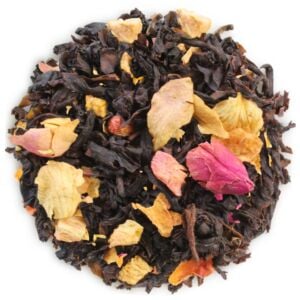
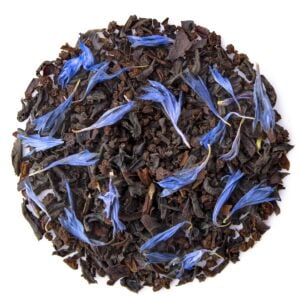
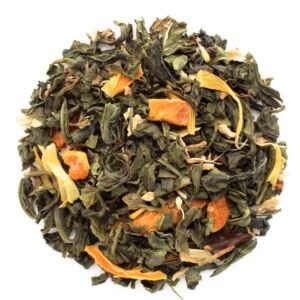
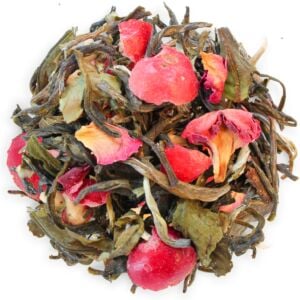
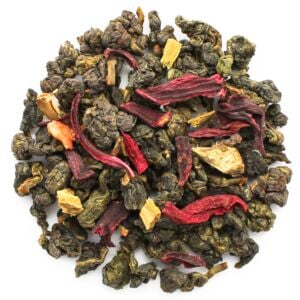
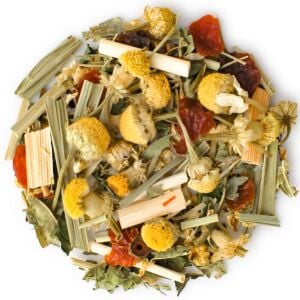
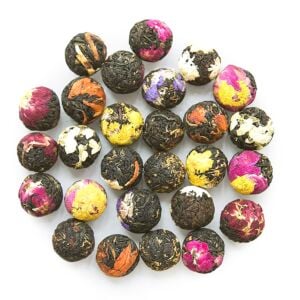


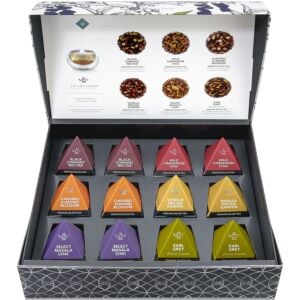
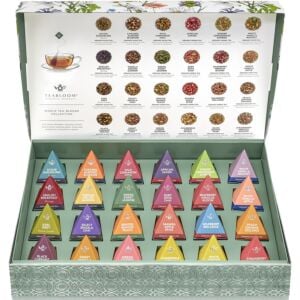

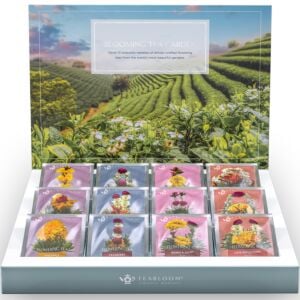
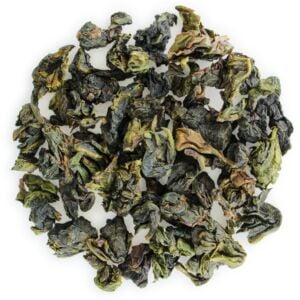
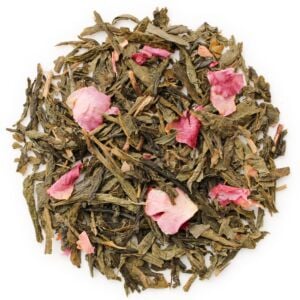
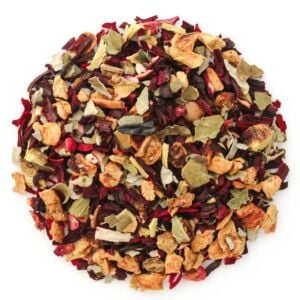
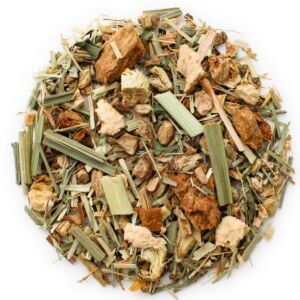
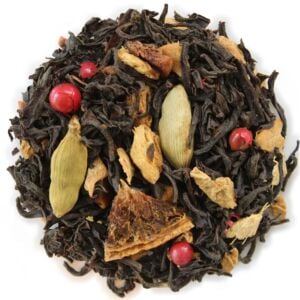
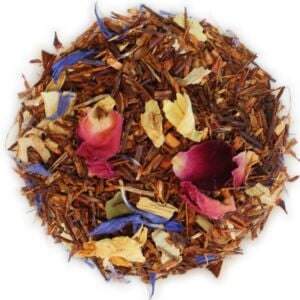
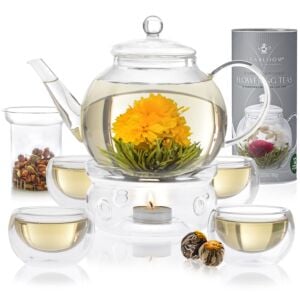
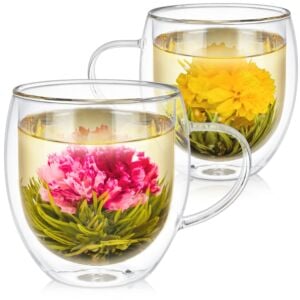
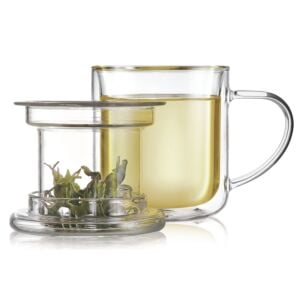
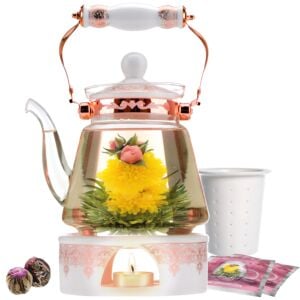
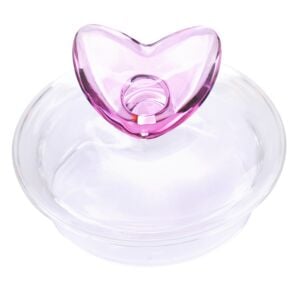
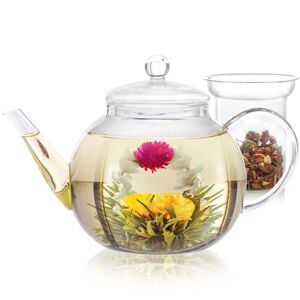
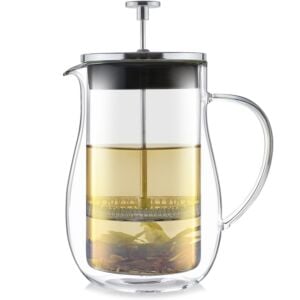
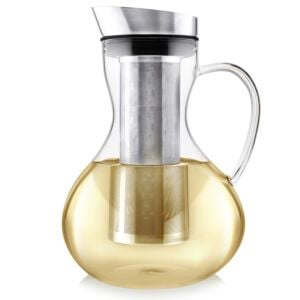
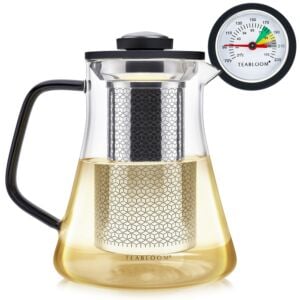
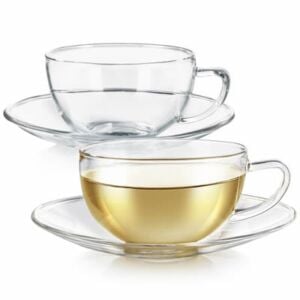
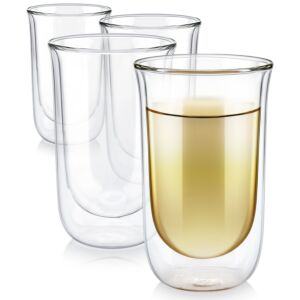
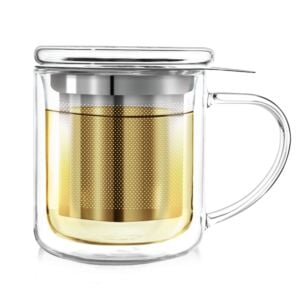
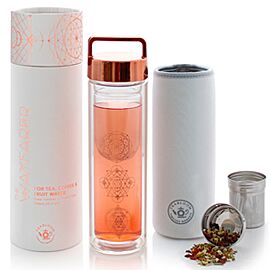

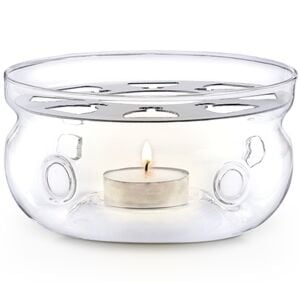
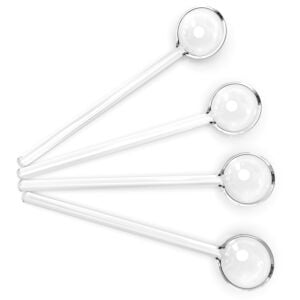
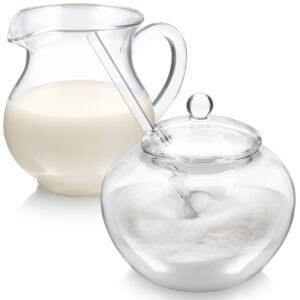
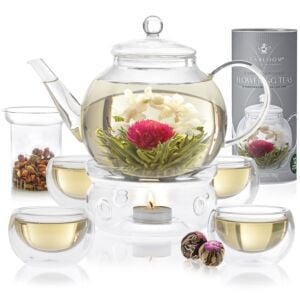
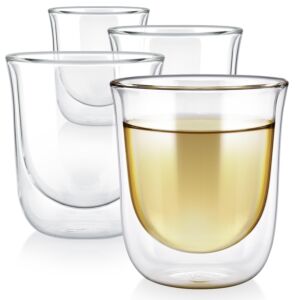
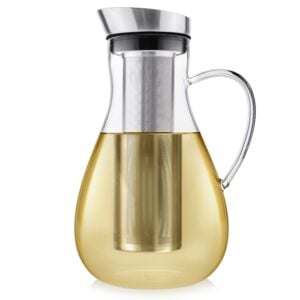
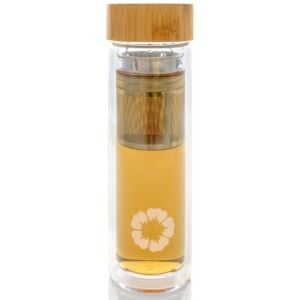
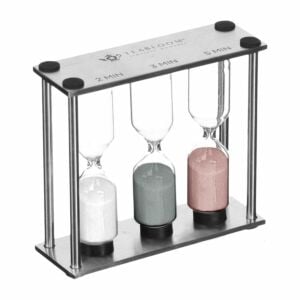
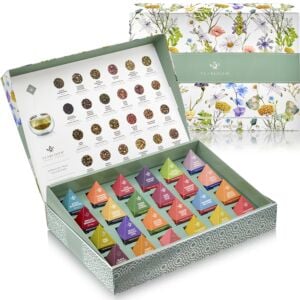
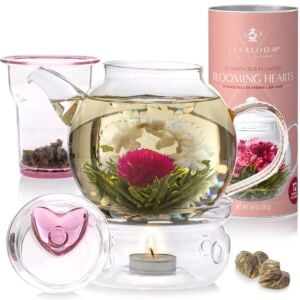
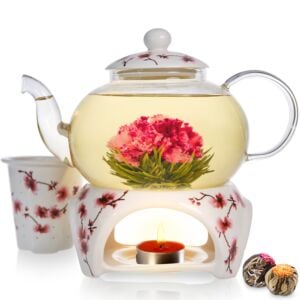
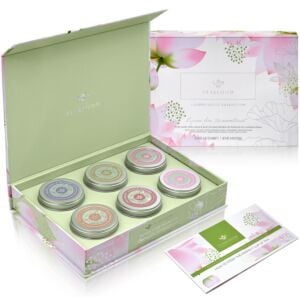
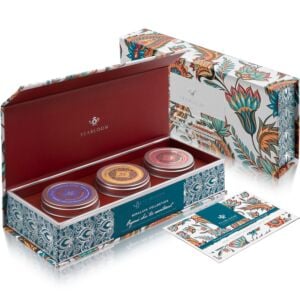
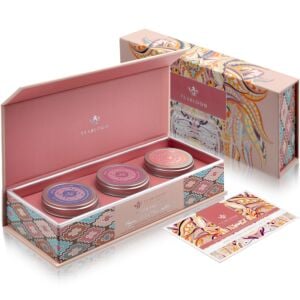

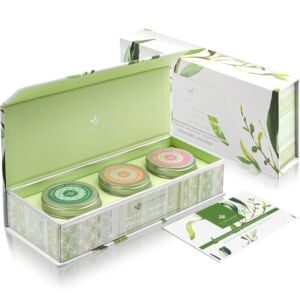
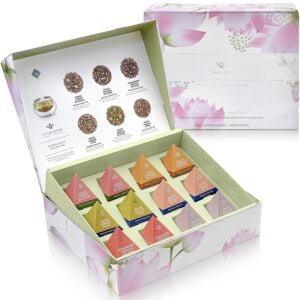
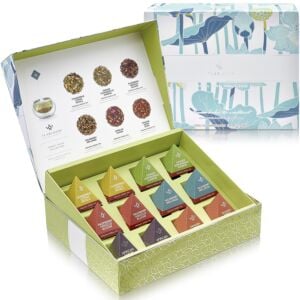
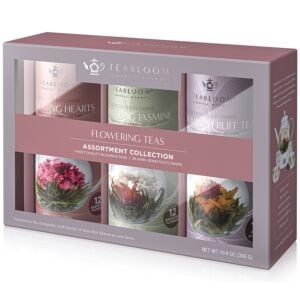

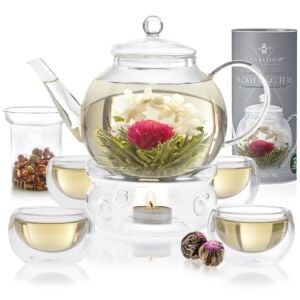
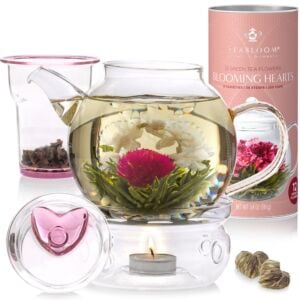
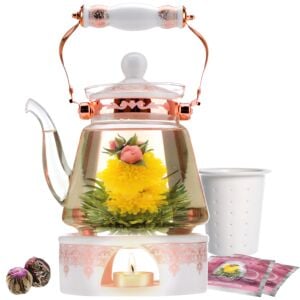
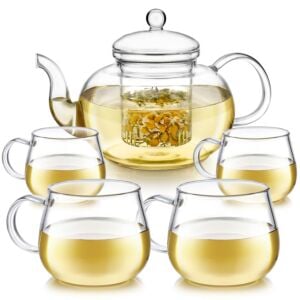
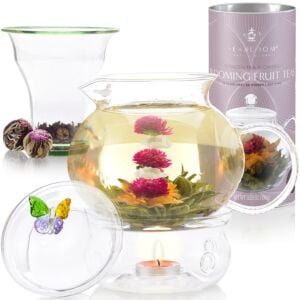
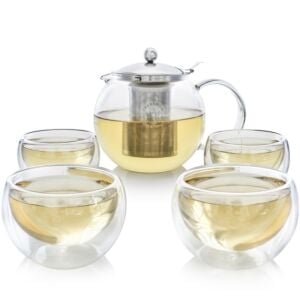
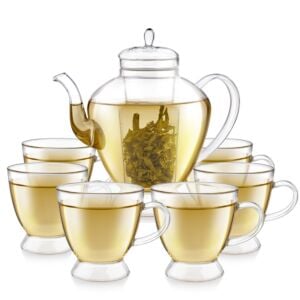
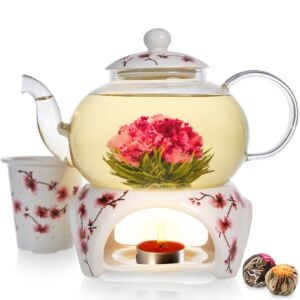
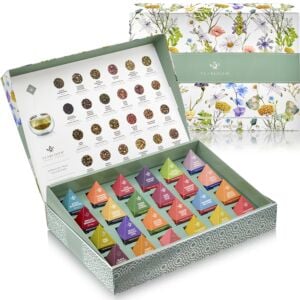
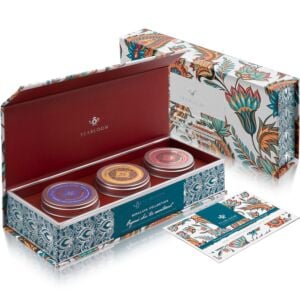
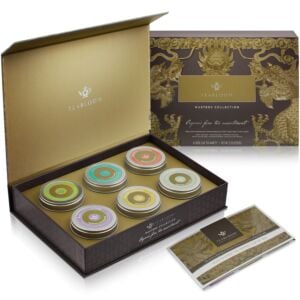
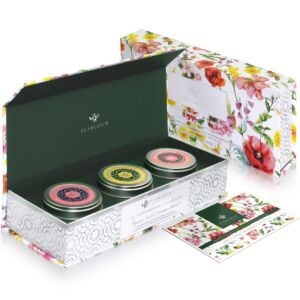
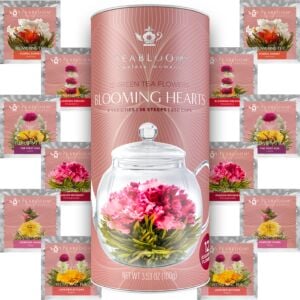
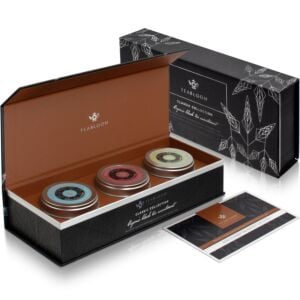
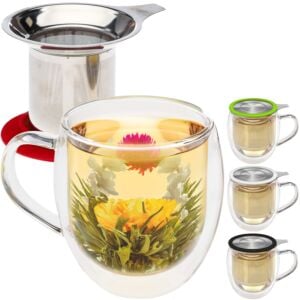

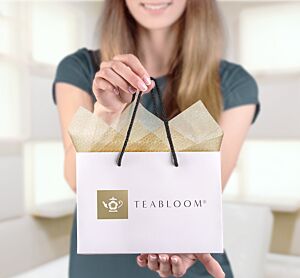
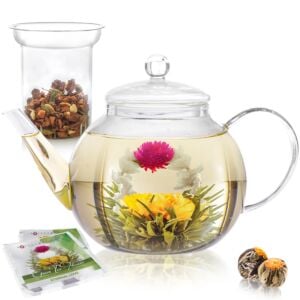
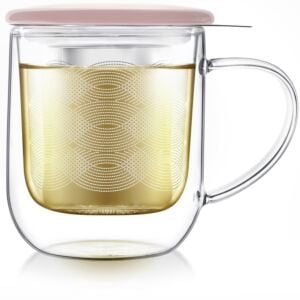

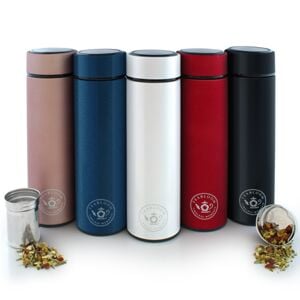
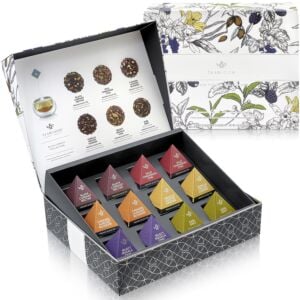
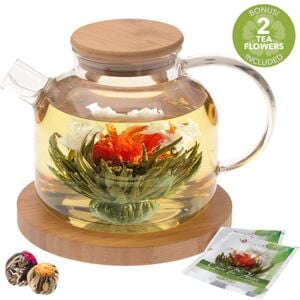
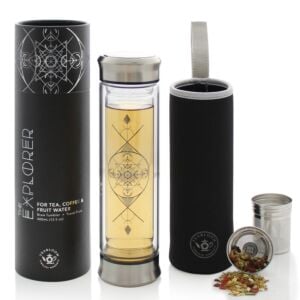
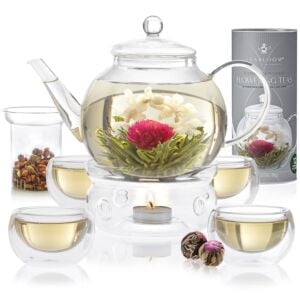
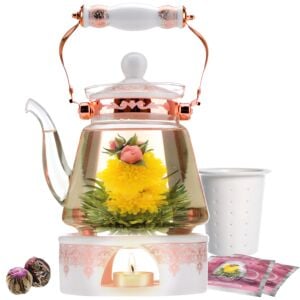
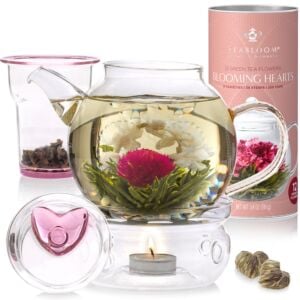
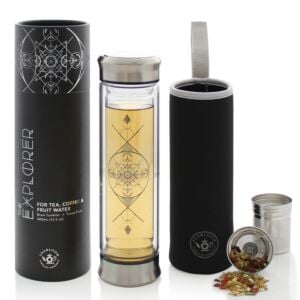
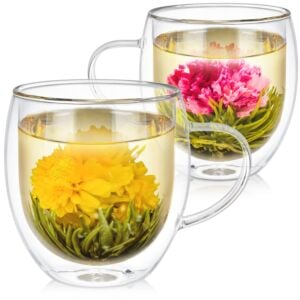
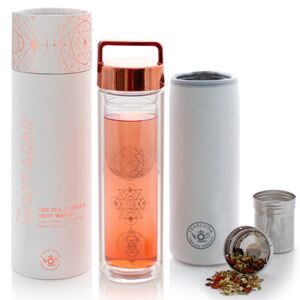
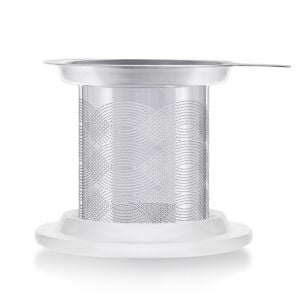
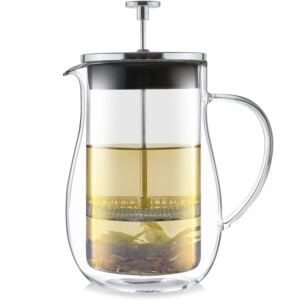
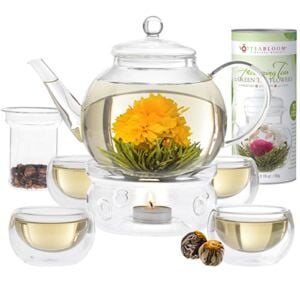

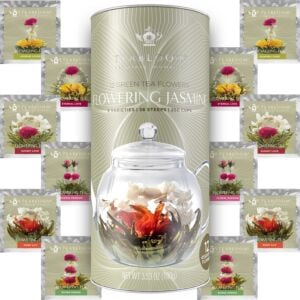

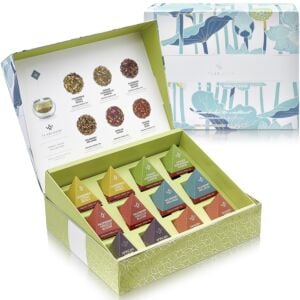
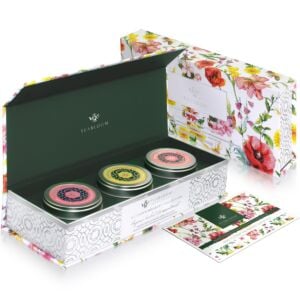
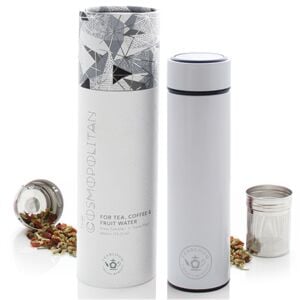

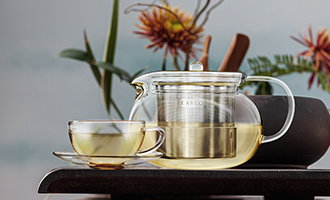
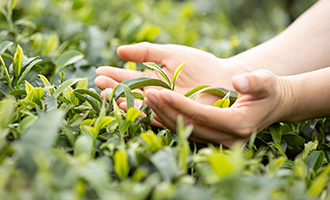
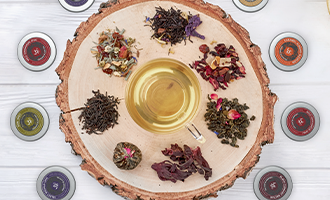
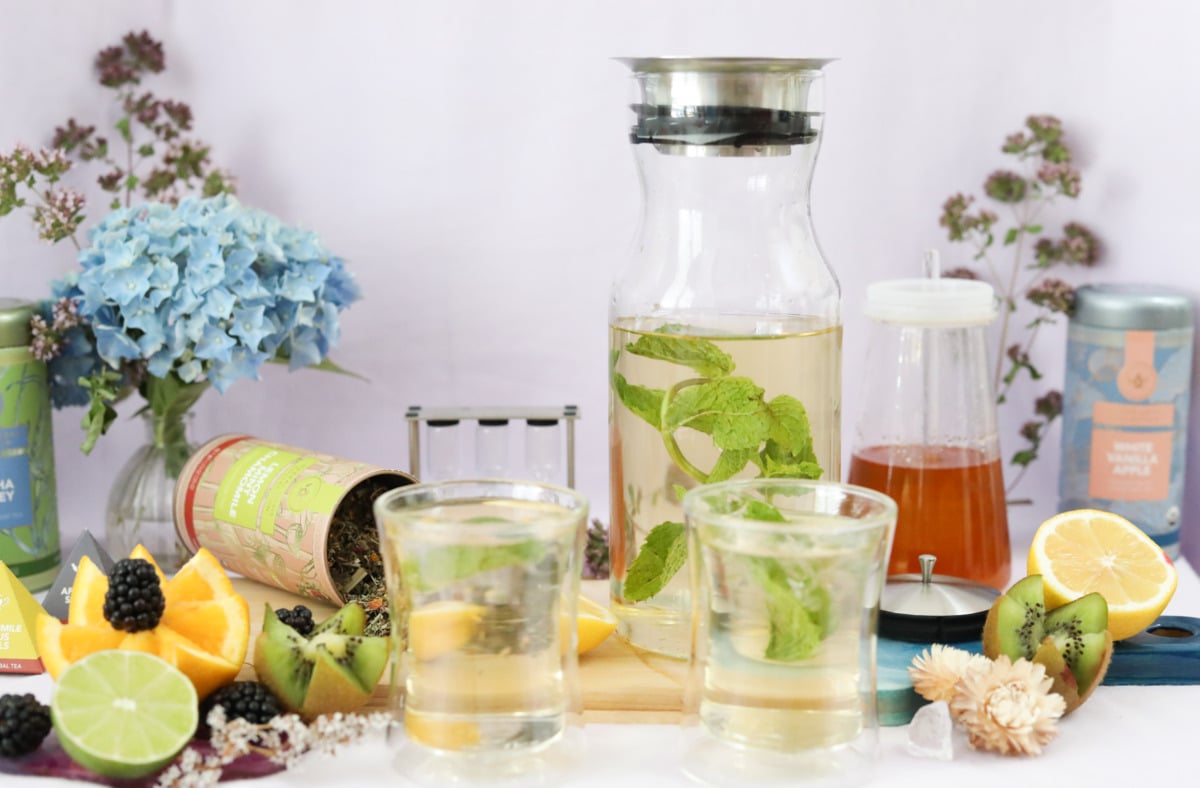
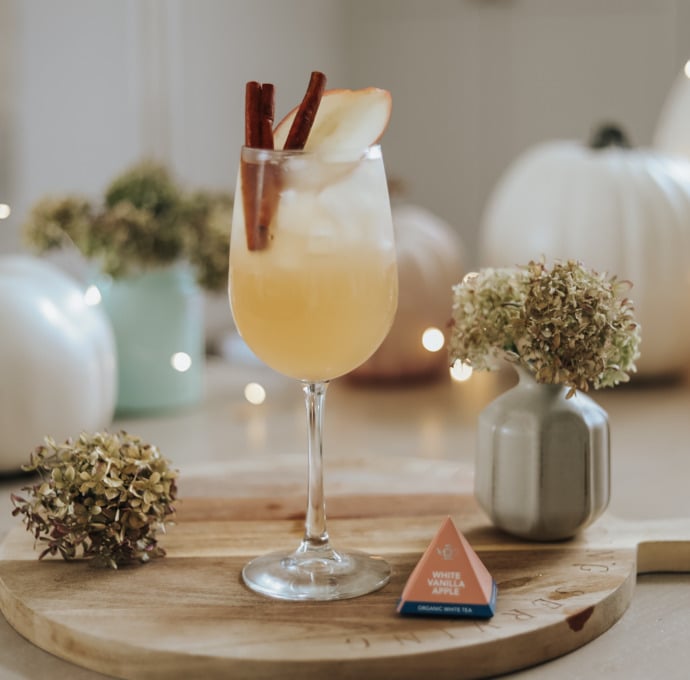

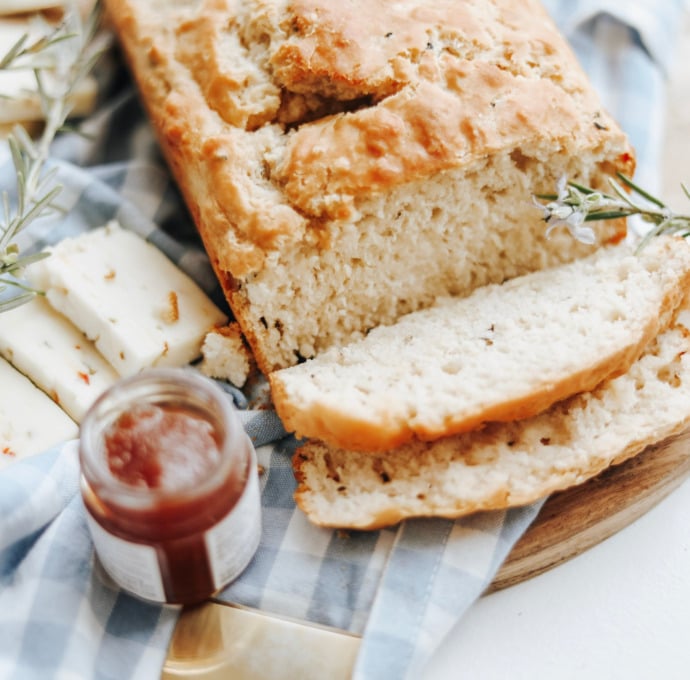
Share your thoughts